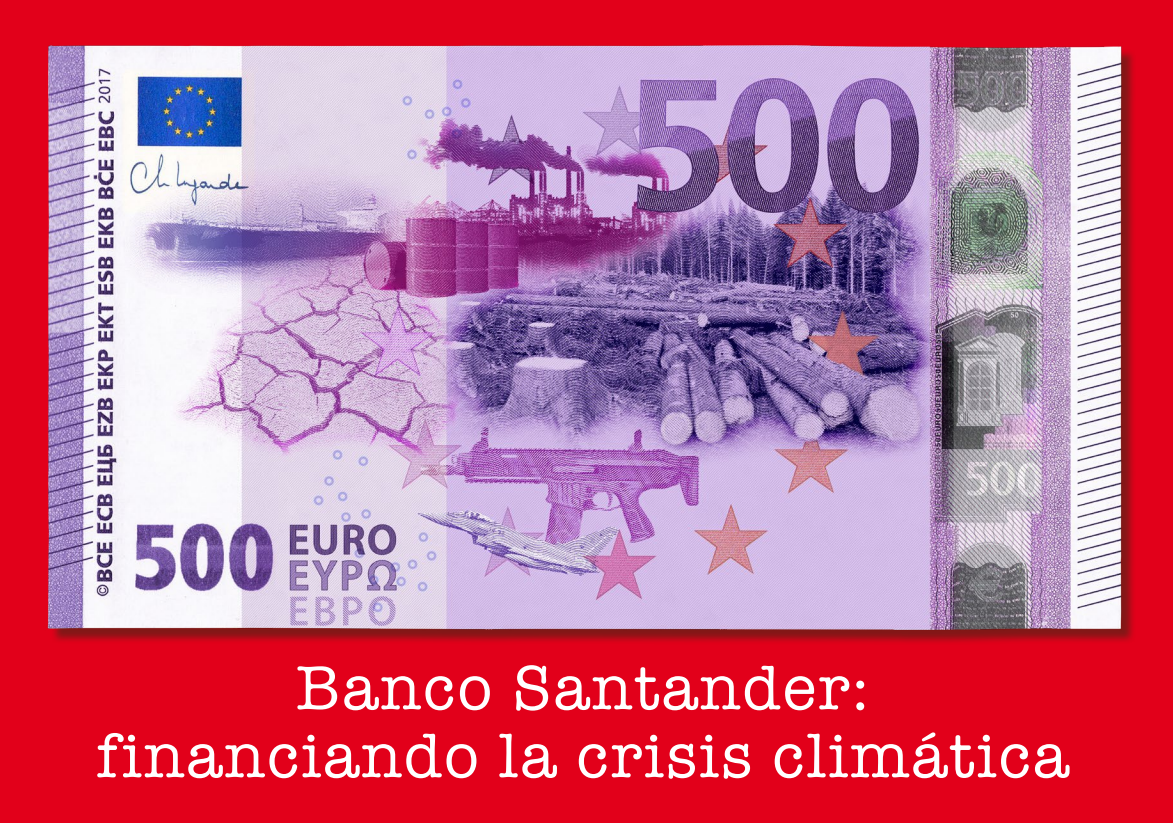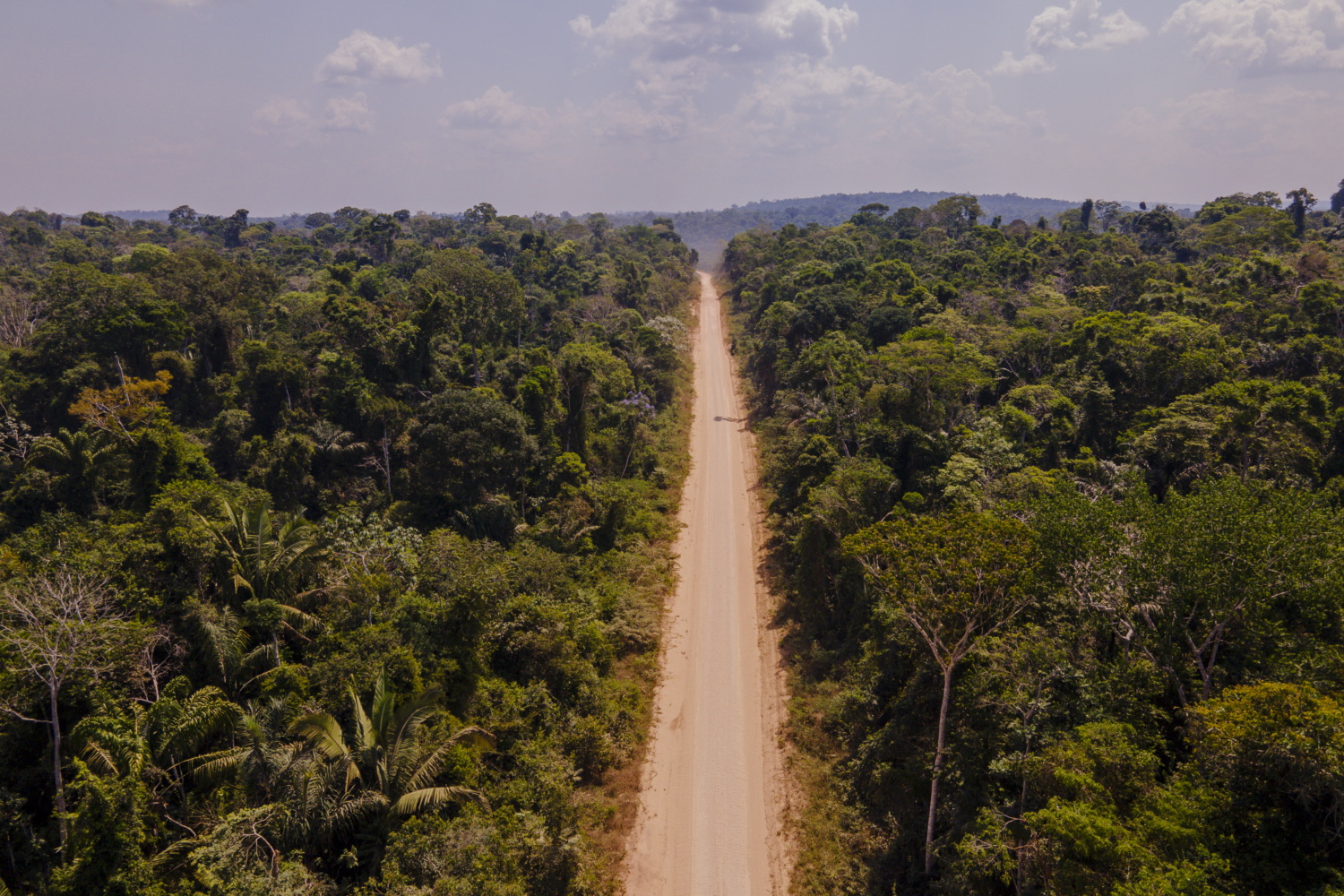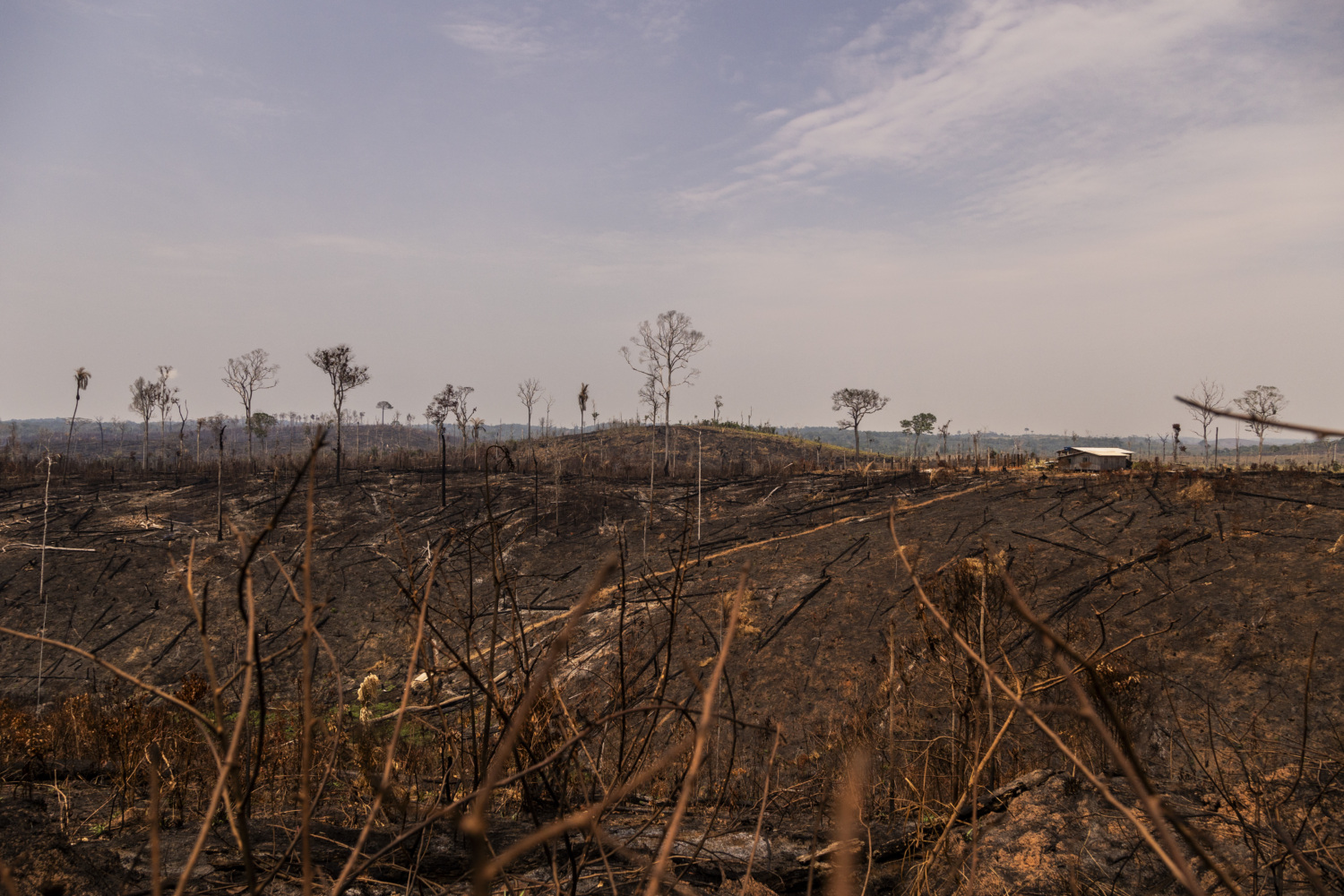
Santander bank finances the climate crisis and deforestation
Ahead of the bank’s AGM a report by Ecologistas en Acción and Mighty Earth highlights the negative impact of Santander’s investments in agribusiness, the fossil fuel industry and the arms trade
Executive summary Spanish report Spanish press release
Ahead of the Santander General Annual Meeting in Madrid, Ecologistas en Acción and Mighty Earth have released the report “Banco Santander: Financing the climate crisis,” which details some of its most negative investments for the planet.
According to the report, between 2010 and 2022 Santander offered credit worth USD 11,086 million to the sectors most involved in global deforestation: wood, paper, palm oil, beef, soybeans, and rubber, occupying the fifth position in the ranking of financiers of these sectors
Santander is also the second financial institution in the EU that grants most loans to the main Brazilian beef exporters involved in deforestation: JBS, Marfrig and Minerva.
In the case of JBS, since 2019 Banco Santander has carried out nine bond issuances for an amount of USD 7,650 million and has participated in eight of them for an amount of USD 7,150 million. This places it among the 20 banks that are not only financing deforestation in tropical rainforests, but also driving the largest methane emissions (a gas with a global warming potential 84 times greater than CO2) related to the livestock sector globally.
Regarding the financing of fossil energy, the report details an increase in the interest of the financial sector in Liquefied Natural Gas (LNG, composed mainly of methane), one of the most harmful industries in the world.
Santander, according to data provided by Profundo, would have participated between April 2021 and September 2022 in the placement of bonds worth USD 3,000 million for Venture Global LNG, a US company that is developing LNG plants on the Gulf coast from Mexico.
This is a highly controversial investment, with local organizations warning of air pollution in the area, causing health problems for the local population. There are also several environmental issues: danger of the site being flooded; local homes being contaminated; and threats to farmland and fragile coastal wetlands. On a social level, most people living in this area are black and indigenous communities, who continue to fight daily to protect their homes and livelihoods.
Finally, the report details Santander’s involvement in the arms trade echoing the report by the Center Delàs “ Financing of militarization and border warfare in the Mediterranean.” Santander financed large companies involved in the arms industry and border militarization between 2020 and 2022 to the tune of more than 4,000 million euros. All this despite the bank’s policies that prohibit the financing of military weapons.
The report includes key recommendations for Santander:
▪ Suspend any services, financing or contracts with those companies that do not transparently demonstrate that they fully comply with its no-deforestation agreements.
▪ Require energy, meat and dairy companies financed by Santander to publish quantified, independently verified, and complete information on methane emissions (Scope 1, 2 and 3) by product line.
▪ Comply with signed global agreements (especially the Net Zero Alliance) and adopt a strategy of progressive withdrawal from the oil and gas industry according to a specific schedule.
▪ Establish better monitoring and control mechanisms based on international legislation and standards on the financing of companies dedicated to the development of dual-use materials (both civil and military).
▪ Withdraw funding from any company engaged in the development, manufacture, and distribution of materials capable of being used for war.
Ecologistas en Acción and Mighty Earth, signatory organizations to the report, have declared: “We must be vigilant to avoid greenwashing and demand that Santander demonstrates real corporate responsibility that sanctions this type of investment and allows a redirection of flows funds towards activities that do not impact the lives of people and the health of the planet.”

